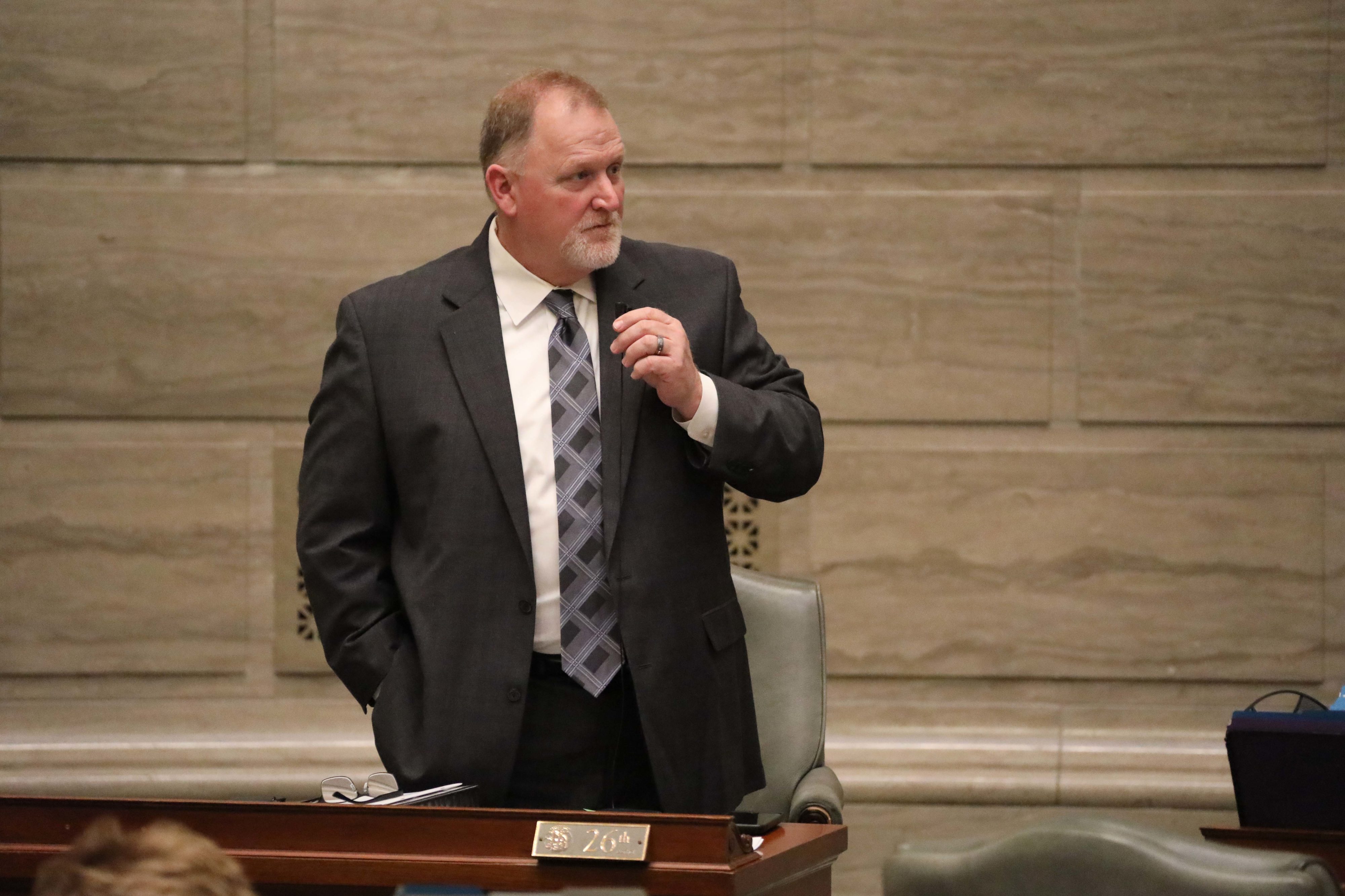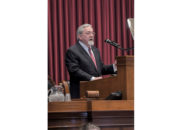JEFFERSON CITY, Mo. — While there’s a laptop on every desk in the lower chamber, the Missouri Senate has largely avoided promoting the use of digital technology on its floor — until now.
SR 4, handled by President Pro Tem Dave Schatz on the second day of session, altered various Senate rules including those regarding the use of digital technology in the upper chamber. Under the new rules, legislators can opt to receive bills and amendments digitally, rather than waiting on a paper copy as has been tradition. Hard copies will still be available, and action will remain stalled until all copies are distributed.
“The only thing that we’re changing — and it’s not a monumental change — is the fact that when a document goes to your desk, it’s scanned in and distributed through the system and sent to every senator’s desk at that point,” Schatz said on the floor. “That’s not a huge change to the Senate — it doesn’t speed up the process to the point where we’re moving at lightning speed because we can still seek recognition to have a conversation about what’s going on.”
Floor debate over digital bill distribution lasted more than two hours before moving on to the rest of the resolution. The loudest dissenting voice in debate was from Minority Floor Leader Sen. John Rizzo, who offered an amendment that would have removed the technology provision entirely and preserved the traditional method of bill delivery.
“I’m very into 21st-century technology in my life at home, but it’s a little different when you walk through those doors and into this chamber,” Rizzo said during debate on his amendment. “There are reasons that we do things the way we do — we take extremely difficult votes in here. We take votes that affect the entire state of Missouri in ways we might not even be able to imagine, and we should have to stand up and audibly declare where we stand on these issues.”
GOP Sen. Tony Luetkemeyer also spoke against the provision, saying the rapid digital delivery of bills and amendments could “totally change the dynamic” of action on the floor.
Sens. Bill White and Andrew Koenig — who both had tablets on their desks, as did Schatz — backed the President Pro Tem’s proposed changes during debate, pointing out the increased efficiency and speed that updated technology could bring to the floor.
Rizzo’s proposal was ultimately quashed by a compromise amendment from Schatz, which disallowed the use of laptops and relegated the Senate to flat devices.
Schatz’s resolution altered other rules for the upper chamber, including changing the Fiscal Oversight Committee to the Committee on Governmental Accountability and Fiscal Oversight. The new committee will consider bills costing in excess of $250,000 rather than the established $100,000 fiscal note.
The new rules also changed the number of members assigned to various committees: Agriculture will have nine members instead of eight, Economic Development lost two of its 11 seats, and Ways and Means was reduced from eight members to seven.
The 2021 legislative session kicked off Wednesday, when Schatz was officially elected President Pro Tem.

Cameron Gerber studied journalism at Lincoln University. Prior to Lincoln, he earned an associate’s degree from State Fair Community College. Cameron is a native of Eldon, Missouri.
Contact Cameron at cameron@themissouritimes.com.











